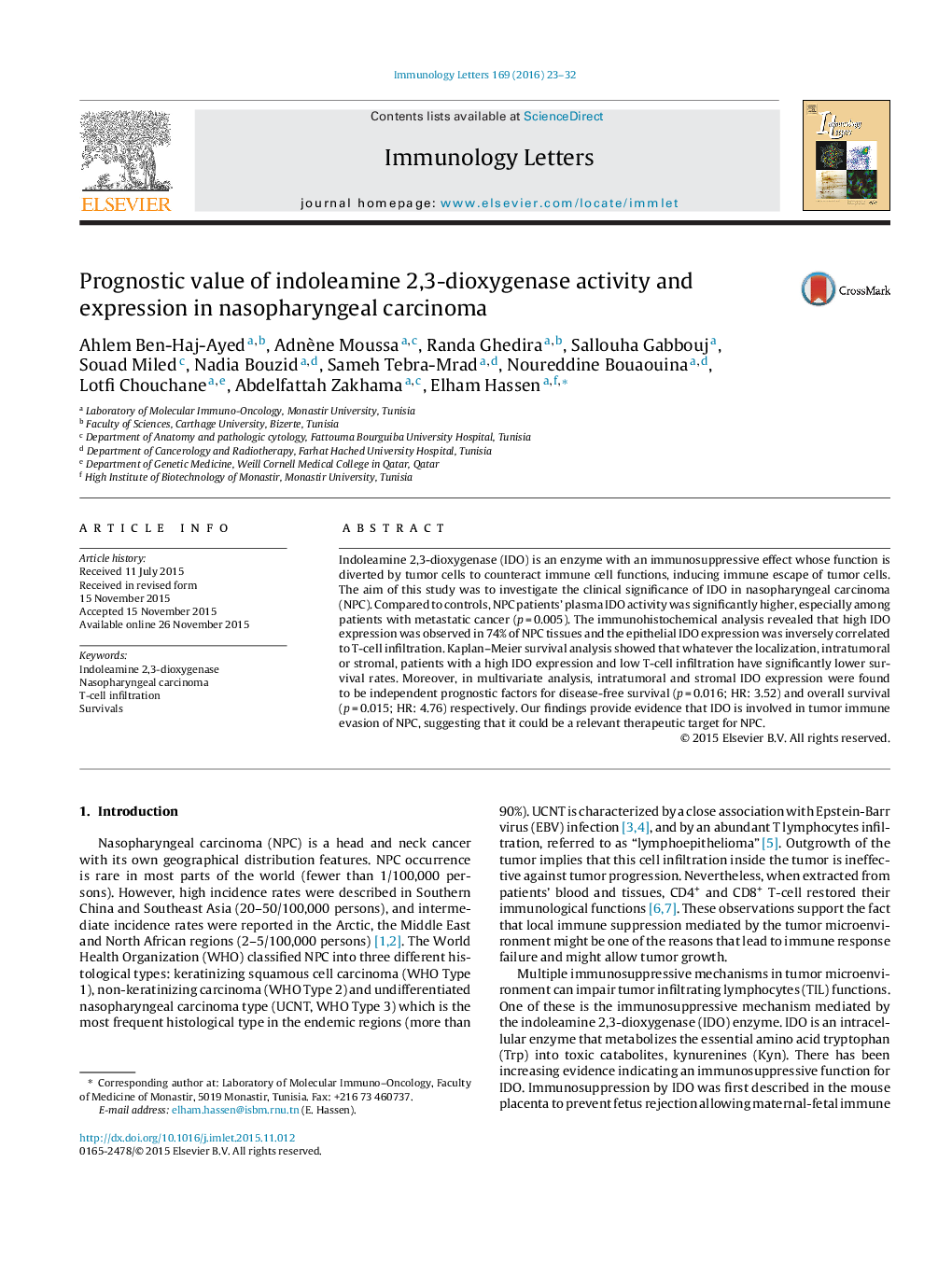| Article ID | Journal | Published Year | Pages | File Type |
|---|---|---|---|---|
| 3355291 | Immunology Letters | 2016 | 10 Pages |
•Indoleamine 2,3-dioxygenase role in nasopharyngeal carcinoma pathogenesis was studied.•Indoleamine 2,3-dioxygenase activity is higher in patients with distant metastases.•Indoleamine 2,3-dioxygenase expression was observed in 74% of the patient tissues.•Multivariate analysis shows the association of survivals with Indoleamine 2,3-dioxygenase.•Indoleamine 2,3-dioxygenase could be a relevant therapeutic target for NPC.
Indoleamine 2,3-dioxygenase (IDO) is an enzyme with an immunosuppressive effect whose function is diverted by tumor cells to counteract immune cell functions, inducing immune escape of tumor cells. The aim of this study was to investigate the clinical significance of IDO in nasopharyngeal carcinoma (NPC). Compared to controls, NPC patients’ plasma IDO activity was significantly higher, especially among patients with metastatic cancer (p = 0.005). The immunohistochemical analysis revealed that high IDO expression was observed in 74% of NPC tissues and the epithelial IDO expression was inversely correlated to T-cell infiltration. Kaplan–Meier survival analysis showed that whatever the localization, intratumoral or stromal, patients with a high IDO expression and low T-cell infiltration have significantly lower survival rates. Moreover, in multivariate analysis, intratumoral and stromal IDO expression were found to be independent prognostic factors for disease-free survival (p = 0.016; HR: 3.52) and overall survival (p = 0.015; HR: 4.76) respectively. Our findings provide evidence that IDO is involved in tumor immune evasion of NPC, suggesting that it could be a relevant therapeutic target for NPC.
